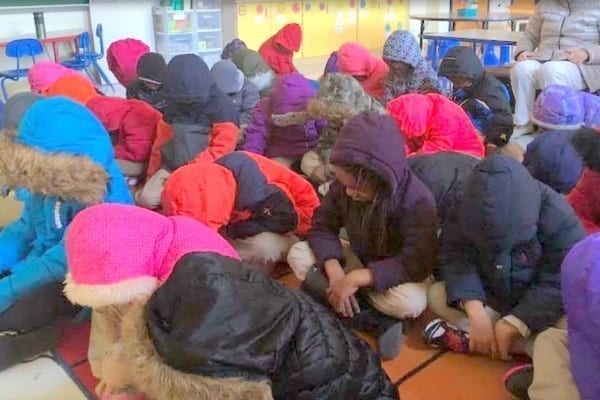School furnace broken? Cancer diagnosis? A failing commons means more people begging for funds, but crowdfunding won’t cure poverty or fix systemic ills.
Crowdfunding is fast becoming a way that our society picks winners and losers. While soliciting the openhanded public is a useful way to pull together seed capital for a new artistic endeavor or innovative gadget, other appeals to the good Samaritans of the internet are gaining visibility. As we proceed further down the slope of societal decline, people are increasingly forced to go begging for public goods that should be part of the commons of a first world nation like the United States purports to be. Unfortunately, crowdfunding won’t cure poverty and may even widen the gap between the Haves and Have-Nots.
With the repeal of the Affordable Care Act’s individual mandate, fewer healthy people are likely to buy insurance. With fewer healthy people in the pool, insurance costs will rise for the people who need more coverage, resulting in more of those people dropping out of the market as well. When someone gets sick but can’t afford insurance or medical care, where can one turn?
A recent Mother Jones piece explored the rise in crowdfunding to cover medical expenses. Now it’s possible, if you’re feeling particularly generous, to “shop” sites like YouCaring.com by comparing the marketing appeals of sick people to decide which are worthy of your donation. According to MoJo, dramatic appeals by those with acute, sensational diagnoses tend to do better among donors, with breast cancer one of the most popular causes. Chronic conditions, preventative care, and appeals by those from already underserved communities don’t do as well. One appeal to fund an outreach program to encourage more African-American mothers to breastfeed their children, which would have had a strong impact on the lifetime health of better-nourished infants, received no donations at all. Connecting sick people to a sympathetic public can help a lucky few avoid bankruptcy, but crowdfunding won’t cure poverty and it won’t fix a broken healthcare system.
Meanwhile in Baltimore, a cold snap sent temperatures into the teens and broken, outdated school HVAC systems meant children were wearing coats and hats inside their classrooms. Maryland is considered to be one of the wealthiest states in the nation, but that doesn’t mean the funds are spread evenly among all neighborhoods. In this completely unsurprising case, it’s the underfunded schools in minority communities that had classroom temperatures in the 40°F range. At that point, it becomes an exercise in lesser-evilism: keep freezing schools open so that kids might learn something and have a lunch they might not get at home, or close the schools and send working parents into a childcare panic?
When a concerned citizen organized a GoFundMe campaign asking for $20,000 to buy outerwear and space heaters to keep Baltimore’s elementary students warm, donations poured in: over $78,000 in five days. It’s great that people were willing and able to chip in, but it never should have come to that. The health of our commons should be considered a public investment, not a charity case, and crowdfunding won’t cure poverty.

The idea that the safety net should be left solely to charity is popular among a subset of Americans who would prefer a government you could drown in a bathtub. One thing that charity does really well is cater to the moral and social views of people with money to spare. If your ideology causes you to perceive wealth as a sign of virtue, whether it’s due to God’s or the Market’s favor, this quality is a feature. However, if you believe that wealth often comes from fortunate choice of birth parents, from privatizing profits while socializing costs, or from ruthless manipulation of business or government forces, freeing the wealthy to bestow dollars of favor upon those most appealing to them becomes a self-perpetuating problem.
Crowdfunding lowers the philanthropic bar by allowing those with even a few extra dollars to directly support a cause (plus a cut for the crowdfunding site, because even a charity can be a profit center). Unfortunately, that means it takes a much larger consensus among donors to assure success.
Funding seekers with wide, wealthy social networks and charismatic (or manipulative) personalities are likeliest to meet crowdfunding goals, but they’re also more likely to have the social resources to draw upon in the first place. In this way, crowdfunding widens the wealth gap while failing the many who may need it the most. It’s great that Baltimore schools were funded, but what about all the other schools which aren’t? If you met with financial or medical tragedy, would you have the energy to effectively market your crowdfunding campaign?
Crowdfunding won’t cure poverty, fix systemic problems, or help all Americans move forward in an increasingly unequal economic future. However, it might help those who would like to feel wealthy feel better about themselves, and since it enables those with extra resources (that is, power) to choose who lives and who dies in a world where those with fewer resources are forced to beg, crowdfunding is here to stay.
Related: Crowdfunding for Civility


Join the conversation!